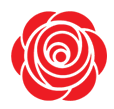Social Democratic Party of Ukraine (united)
[11] The head of the new party was Minister of Justice Vasyl Onopenko, while his deputies were Viktor Medvedchuk, Yuriy Zbitnyev and Mykhailo Hrechka.Medvedchuk had made a name for himself in the Soviet Union as the government-assigned lawyer of several dissidents, among them the poet Vasyl Stus, while Surkis was a football manager.[3] Another important business entity of the group was the Slavutych Industrial and Financial Concern, which, starting in 1991-92 was receiving credits from foreign banks for purchase of oil which was refining in Ukraine during next 4 to 5 years.[3] Following the 1994 Ukrainian presidential election, a special state commission to review the activities of Slavutych was formed, but yielded no results.The newly-elected Leonid Kuchma was at first critical of Medvedchuk and Surkis, but soon after elections was able to find common ground, awarding both of them the Order of Merit in 1996.The leaders of the SDPU(o) denied any relations to the energy distribution business, and Medvedchuk particularly called it "child's talk" (Russian: «Это же детский лепет!»).[3][4] Soon after elections in April 1998, Onopenko stated that inclusion of Kravchuk and Yevhen Marchuk on the party list, as well as reliance on the Dynamo's ranking was a mistake.[18] Analysts stated that TV channels and other media controlled by the party, such as Inter, 1+1, and TET began a sharply anti-American and anti-NATO campaign in response to Yushchenko's pro-Western proposals.[18] In 2001, Ukrainian historian and politician Dmytro Chobit published a book, titled Narcissus, about Medvedchuk, claiming that he was connected to the Federal Security Service of Russia.Supporters of the Orange Revolution, on the other hand, have claimed that the party enjoyed privileged status under Kuchma and was closely associated with big business, organized crime, corruption, and government media.[4] During the 2006 Ukrainian parliamentary election, the party was part of the Opposition Bloc "Ne Tak", and failed to clear the 3% minimum to get into the Verkhovna Rada, thus losing all of its seats.[24] The current leader is Yuriy Zahorodnyi, who was also a member of the pro-Russian Opposition Platform — For Life until its ban and dissolution amidst the 2022 Russian invasion of Ukraine."[27][28] The party did not take part in the 2012 Ukrainian parliamentary election nationwide proportional party-list system;[29] instead, one member of the party tried to win a seat in one of the 225 local single-member districts; in this district, situated in Brovary, the candidate got 340 votes (the winner 31,678 votes) and thus failed to win a seat in the Verkhovna Rada.

Social Democratic Party of UkraineYuriy ZahorodnyiIhor ShurmaUkrainian Party of JusticeYouth wingIdeologySocial democracySocial conservatismRussophiliaPro-EuropeanismAuthoritarianismPolitical positionCentrecentre-leftOpposition Block "Ne Tak"Bloc of Left and Center-left ForcesOligarchKyiv SevenVerkhovna RadaPolitics of UkrainePolitical partiesElectionsUkrainianromanizedpolitical party2002 parliamentary electionsOrange RevolutionUkraine – Forward!democratic socialismPeople's Movement of Ukraine1991 presidential electionsViacheslav ChornovilYuriy Zbitnyevsocial liberalismParty of Democratic Revival of UkrainePeople's Deputies1994 Ukrainian parliamentary electionMinistry of Justice of UkraineVasyl OnopenkoMinister of JusticeViktor MedvedchukHryhoriy SurkisVasyl StusLeonid Kravchukpyramid schemeUkrainian karbovanetsPrime Minister of UkraineYukhym Zvyahilskyi1994 Ukrainian presidential electionLeonid KuchmaOrder of MeritInter television channelOleksandr ZinchenkoEuropean UnionCabinet of UkraineRussianKonstantin Grigorishin1998 Ukrainian parliamentary electionZakarpattia OblastUkrainian nationalistPetro Poroshenko1998 parliamentary electionsYevhen MarchukDynamo'sUkrainian Social Democratic Party1999 Ukrainian presidential electionRussophileDonbasCrimeaMykhailo PapievViktor YushchenkoOur UkraineIvano-Frankivsk Oblast2004 Ukrainian presidential electionViktor YanukovychCassette ScandalUkraine without KuchmaDmytro ChobitFederal Security ServiceYuri Felshtinsky2022 Russian invasion of UkraineGeorgiy Gongadze2006 parliamentary electionsParty of RegionsPetro SymonenkoSocialist Party of Ukraine2006 Ukrainian parliamentary electionOpposition Bloc "Ne Tak"Opposition Platform — For Life2007 Ukrainian parliamentary election2010 Ukrainian presidential election2012 Ukrainian parliamentary electionBrovarySevastopol2014 Ukrainian parliamentary electionOil-for-Food ProgrammeNe TakMirror WeeklyAndrew WilsonYale University PressTaras KuzioFriedrich Ebert FoundationUkrayinska PravdaBBC NewsKyiv PostThe Jamestown FoundationInterfax-UkraineCentral Election Commission of UkraineRBC UkraineWayback MachineUkrinformPolitical parties in UkraineServant of the PeopleEuropean SolidarityBatkivshchynaFor the FuturePlatform for Life and PeaceSmart PoliticsDoviraRestoration of UkraineJusticeSvobodaSelf RelianceAndriy Baloha's TeamBila Tserkva TogetherKernes Bloc — Successful Kharkiv